|
By Manuel Players: 1 Platforms: Nintendo Switch, PC (Steam) There are a lot of simulator games on the market these days, and I've had some mixed experiences with them over the years. Some can be broken messes full of store-bought assets, and others are pure fun despite their limitations. Coming to us by way of publisher Nostra Games, Trading Card Shop Simulator recently dropped onto the Nintendo Switch following an earlier Steam release, and we're going to see where it falls on the spectrum. Running a card shop is probably going to be a lot of work, so let's just dive right in already! Seeing as there is no story in Trading Card Shop Simulator beyond whatever you choose to make up for yourself, let's go straight to discussing gameplay. As the title suggests, your goal is to set up a Trading Card Shop, and watch it grow. You start with an empty shop that you can name whatever you want, a starting bank balance of $1,000, a cell phone that acts as your portal to everything business related, and a single shelf with which to stock items which are purchased with your starting money. How you grow from those humble beginnings is completely up to you, but the game does offer something akin to a tutorial in its first few in-game days. Games like this can be deceptively complicated when trying to explain their mechanics in a handful of words, so bear with me while I essentially go over that tutorial again. Starting each day of business is as simple as turning the sign in the window from "Closed" to "Open. Each day starts at 9 AM, and your store will be open for business until 9 PM. You can actually close the store at any time during the day too, but that's the general window you'll be working within. Time continuously moves forward while the store is open, but isn't counted before or after the 9 AM-9PM period. This means that those times are perfect for stocking shelves and re-arranging fixtures. Any purchases made on your part, be they store furniture or inventory, are made via your cell phone's menu. You can order anything you wish as long as you have unlocked it by way of your current level, and if you have enough money on hand to pay for it. Each order you make also has a delivery fee attached to it, so you'll have to factor that in as well. Orders are literally dropped out of the sky onto the street in front of your store, but thankfully no one walking by will steal your stuff. You can actually use the street as an unofficial stock area, but that's crazy behavior I can't get behind. Each stockable item has a size that limits how many of them can be stocked within a single space, and any leftover items remain in the box they came in. You'll also need these same boxes to "un-stock" an item, but it's usually best to simply sell through whatever it is if you've already thrown the box away. Once you've stocked your shelves, and recycled the empty boxes outside, you then set the prices of whatever it is you're going to sell. This is where the real magic comes in, as some customers will only buy at a certain level of mark-up. They will of course more than eagerly eat up any item left at the market price, but you'll be losing money at that point thanks to shipping fees and rent. Pricing an item too high means that customers won't buy anything at all, and they'll also leave upset. Finding the right price for an item is key to running a successful shop, and I've found that the magic number is somewhere between 25-35% above the market price. Also, since this is a store that stocks items that can be considered collectables, you'll find that prices for your items will fluctuate day to day. This can be quite the time-consuming task to stay on top of, but it's very important if you want to maximize profits. Each sale you make also raises your in-game level, which in turn allows you to stock new items. These unlockable items typically have higher price points, so your profits will go up accordingly. Even though you're running a card shop, you'll eventually be able to stock non-card items like stickers, dice sets, cell phone cases, and even comic books. You can of course pick and choose whatever you stock, so you can keep your store a "pure" card shop if that's what you desire. Shelves are stocked, now it's time for the real gameplay to begin! What does this gameplay entail? Manning a cash register of course! I'm exaggerating a bit, but you will be spending much of your first few in-game days working the register yourself. This means counting out change for cash sales, and inputting totals for credit card transactions. You can only enter the correct amount for both, so you don't have to worry about either party getting screwed over during a transition. You will eventually unlock the ability to hire staff to take over this part of the game, but you'll still most likely have to work on the register at least a couple times each in-game day. Even though customers come in droves, they thankfully are mostly able to handle all other tasks themselves. There's no need to answer pointless questions, or check if an item is in your non-existent stockroom. Customers will simply buy what's available, and complain if things aren't to their liking. Besides ringing up sales, you can also restock items at any time during the day. There's actually no limit as to what you can do during business hours, so feel free to also upgrade your shop and move furniture around. One other interesting aspect of gameplay that's unique to a TCG shop involves opening card packs to sell the individual cards as singles. This process can make or lose you additional money depending on the cards you pull from the packs. Besides shelving, you also can set up tables for customers to play cards, and this is a service they will pay you additional money for. If you get further into the game, you can also set up tournaments, and this too nets you more money that doesn't require stocking inventory. Money is the name of the game after all, and you're in a constant fight to the top. Besides purchasing inventory, you'll also be spending your money on things like shop upgrades, furniture and fixtures, and bills. Bills are paid out for rent and electricity, though I found that the latter isn't really important. The game does have a day/night cycle, but you can get out of paying the electric bill entirely by never touching the light switch. Rent is charged daily, and you can pay it at seemingly any time you want. If there is a time limit as to when you have to pay, I never encountered it. Furniture and fixtures come in the form of tables for card playing, shelves for standard inventory items, and displays for more expensive inventory or individual cards. While you can recycle (read: throw away) furniture you no longer want, I don't think it's possible to get any return on the money you spent to acquire them. Therefore it's best to plan ahead when purchasing anything new for your store, and you might want to think about finding somewhere to put fixtures that have outlived their usefulness. Upgrades to your store come in two types. One allows you to expand your floor space, and the other allows you to purchase an entire second shop. The second shop isn't a stock area, it's a standalone storefront that takes in money as well. I say "standalone", but there is a door that goes between both spaces. You can upgrade the second store too, and even hire a second employee to work it. Unfortunately there are only two employees for you to hire, a good one and a bad one, so you'll always have one store operating at a lower level than the other. Oh, and I guess I should also point out that you have to pay your employees a daily wage, so I guess that amounts to yet another bill. Even though Trading Card Shop Simulator has one of the most basic gameplay loops I've ever experienced, I'd be lying if I said I wasn't also extremely addicting. I spent far longer playing it than I originally intended, and I even came to care about the store that I was creating. Running the store may be the focus here, but I spent just as much time figuring out fixture layouts, and moving stock around so that it made sense to me from a retail perspective. I even made it a point to place all my overstock in a single tidy area of the store, and made sure that all inventory orders were taken off the street in a timely manner. You'd think that running a virtual store like this wouldn't be very fun, but that's not the case at all. I've personally spent many years of my life working retail, and I never imagined that I'd find myself addicted to a game that simulated the very tasks I disliked. Being on a register was the bane of my existence at one point of my life, but I eagerly jumped at the chance to do it in a digital setting. I can't explain it, but it's just different. There's also the fact that you're creating something from nothing. Seeing your store grow from a single shelf, to two huge, fully stocked retail spaces gives one a surprisingly big sense of accomplishment. There are some quirks to the game I didn't care for, most of them having to do with wonky controls, but all the negatives are overshadowed by how simply fun everything is. This is a game that will probably wear out its welcome after a while, but I have yet to reach that point. I don't have a lot to say regarding the graphics or sound of Trading Card Shop Simulator, so I guess I'll just cover them both at once. Graphically, the game has that Unity Simulator look everyone expects to find in a game like this. Repeated character models, basic textures, and some graphical elements that feel more than a little mismatched. It's not a great looking game, but it's really not an ugly one either. Then there's the inventory items and cards themselves. The in-universe card game actually has dozens (hundreds?) of cards that you can collect, and these all have an AI generated look to them. I can't say that AI was used in the creation of this game, but the cards certainly do look that way. I know that's a very touchy subject in the world of gaming, but I honestly didn't think too much about it here. The possibility is there, but the cards aren't really worth getting upset over. I actually found most of them to be rather cute. On the other hand, music just sort of exists. It's not bad, but it isn't going to win the game any awards either. The best thing I can say about it is that it isn't annoying, and hearing it over the course of several hours didn't make me want to turn the sound down. The music might not even have been created specifically for this game, but there's really nothing wrong with that either. Judging the length of a game like Trading Card Shop Simulator is rather difficult. It will probably take you around 5-10 hours to fully unlock everything in-game, and from there it's a matter of going through the same tasks until you get bored of the repetition. I personally found the game to be worth playing beyond that point, but that can vary from player to player. To that end, I personally think that its current price of $12.99 is more than fair. The real issue lies with the fact that this game seemed to have released alongside two or three other very similar titles. Not only is it a crowded and confusing space, but those other games are all cheaper than this one. I can't compare one game versus the other, since I've not played any but this one, but it is hard to recommend this one over those considering its higher price point. Then again, I can say that this one is totally worth playing when judging it on its own. It has a more than reasonable price point, and I guess I'll leave it up to others to check if the cheaper alternatives are at all comparable. In case it's not obvious, I give Trading Card Shop Simulator the fullest of recommendations. If you're the type of gamer who absolutely loathes Unity-based Simulator games, this one isn't going to do anything to change your mind. On the other hand, if you're fan of them, then this is a must-play game. Those who enjoy simulator titles, TCGs, or even sandbox games, will find something to enjoy here. Pick it up now, set up your shop, and maybe invite me over for a tournament. I can't wait to play more games like this in the future! Until then, I'll see you in the next one! Check Out Trading Card Shop Simulator on Nintendo Switch: https://www.nintendo.com/us/store/products/trading-card-shop-simulator-switch/ Story: N/A Gameplay: B+ Graphics: B Music/Sound: B Value: A Overall: B+ Pros: + A great game that feels a cut above the many Unity-based simulator games out there. + Building your shop from the ground up is quite enjoyable. There's a surprisingly deep level of customization when it comes to your store's look and inventory. + It can quite a while to unlock everything available in-game, so you'll have goals to work towards for much of the game. + Captures the Card Shop vibes in ways I wasn't expecting. Opening packs for individual card sales, and being able to set up in-store tournaments, are nice touches. + Though I suspect that AI art was used in their creation, I have a soft spot for the silly creatures found on the in-universe cards. + While some gameplay elements keep this game far from perfection, it's still quite addicting, and a lot of fun to play. Cons: - The repetitive nature of the core gameplay loop might put off some. - I'm fairly positive that much of the game's individual components are made up of store-bought assets. This isn't truly a negative in the traditional sense, but some might find issue with it. - On a similar note, the art found in the cards has an AI-created look to it. I can't confirm that this is the case, but I'm sure most people will agree with my assessment. - Can be a hard buy when there are a handful of similar-looking games that are currently available at a lower price point. A copy of this game was provided to us free-of-charge by the publisher for the purpose of this review. This did not affect our review in any way. #TradingCardShopSimulator
0 Comments
Leave a Reply. |
Search
Contributors◆ Angie
◆ Emily ◆ J.D. ◆ Janette ◆ JT ◆ Manuel ◆ Nestor ◆ Rose ◆ Sylvia ◆ Teepu ◆ Tiffany ◆ Winfield Archives
July 2025
|
© 2014-2025 A-to-J Connections. All Rights Reserved.

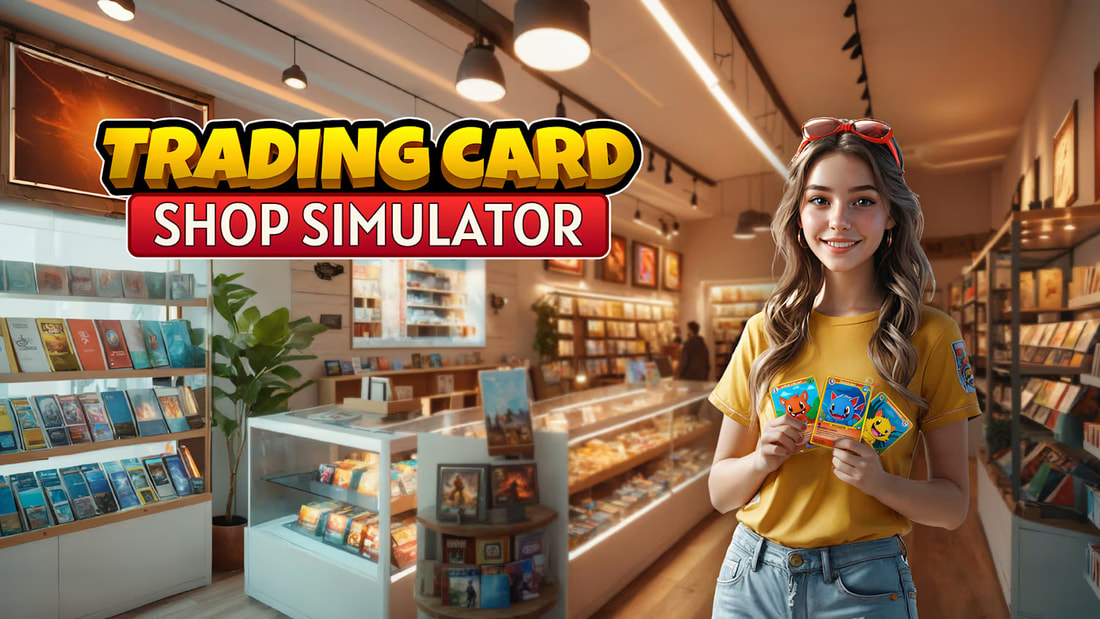
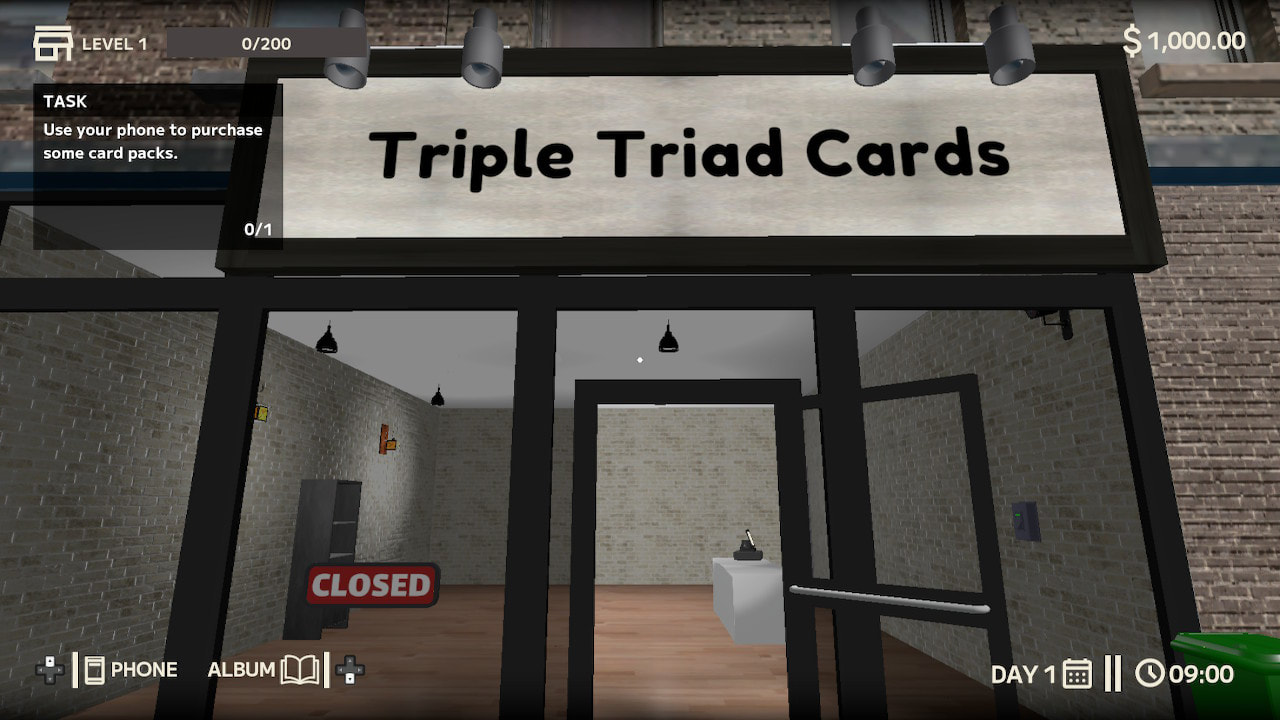
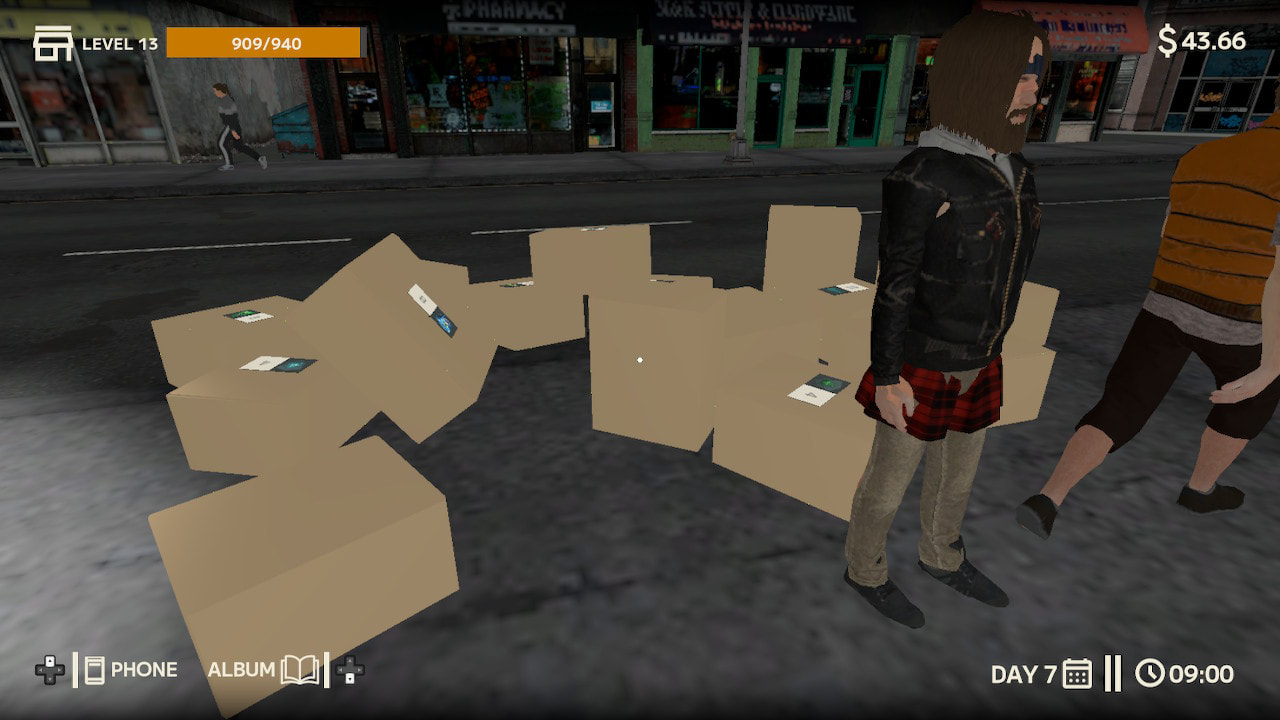
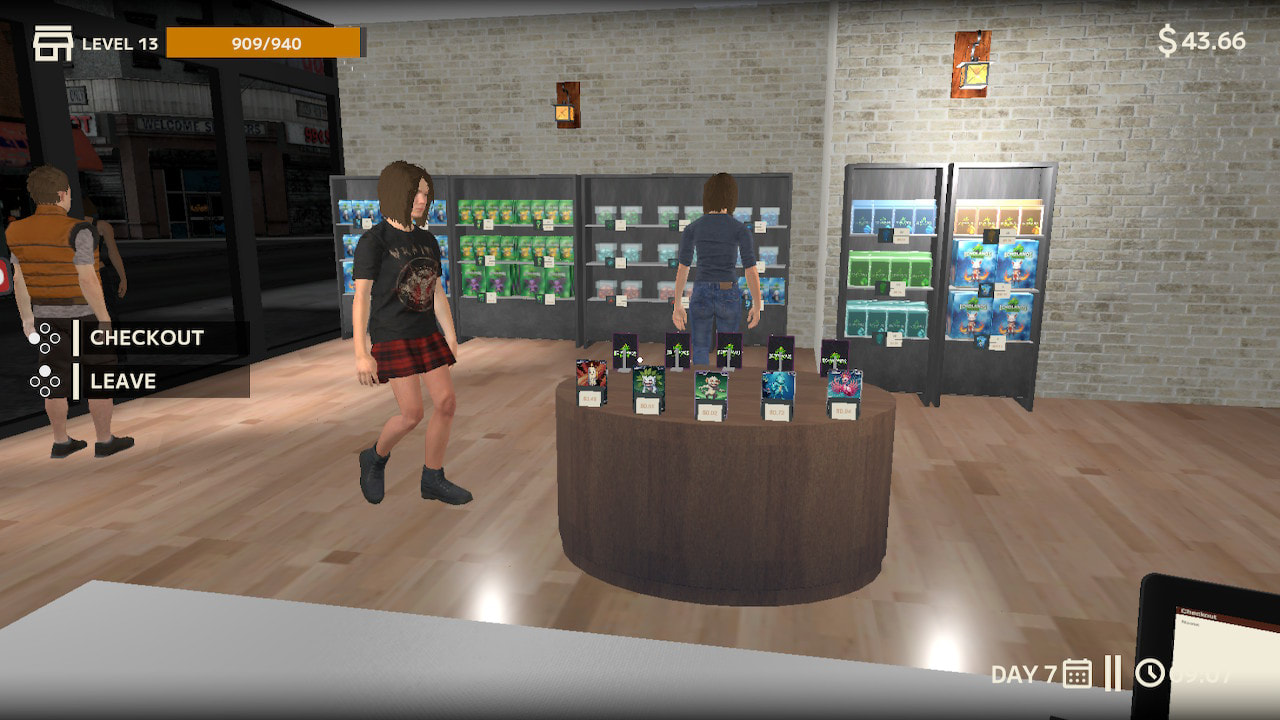
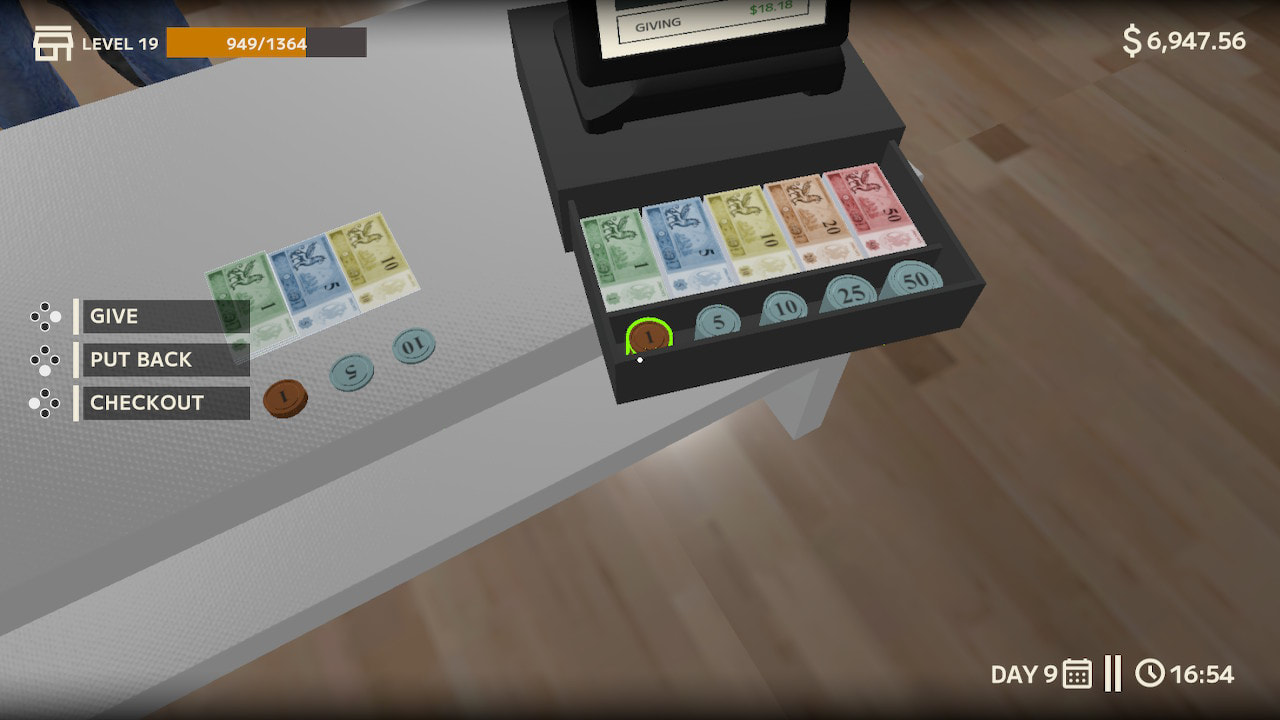
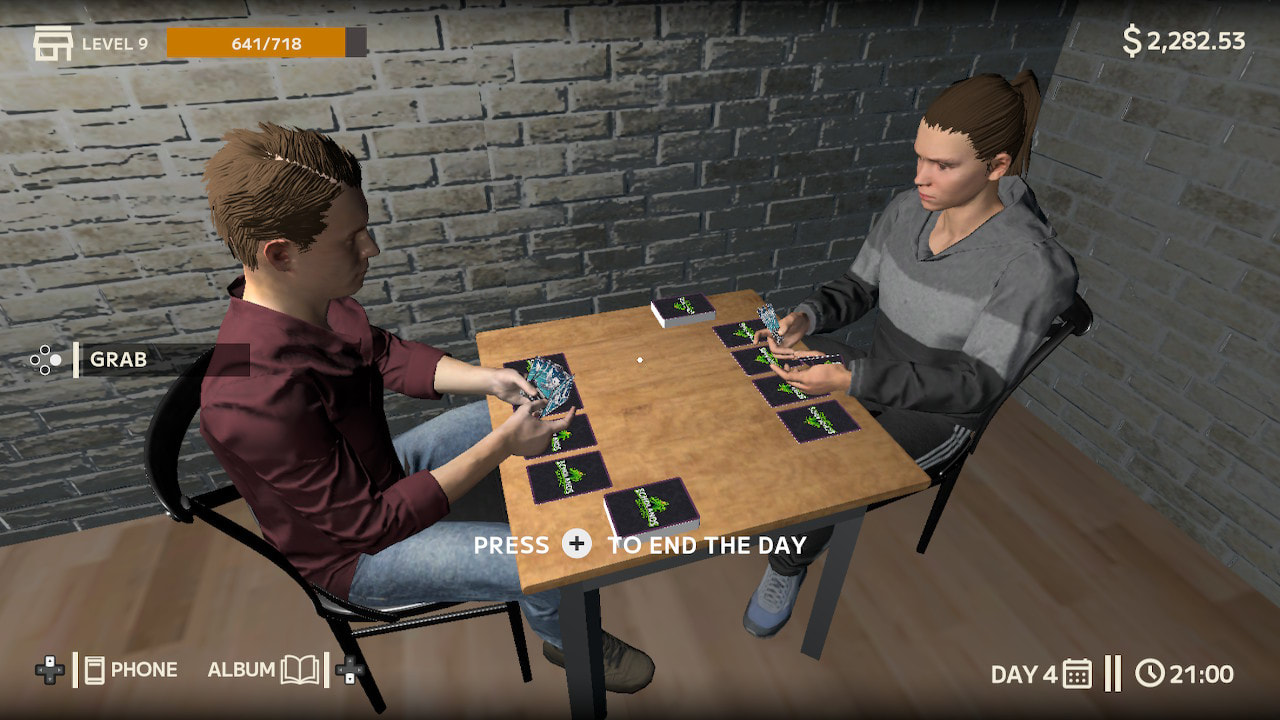
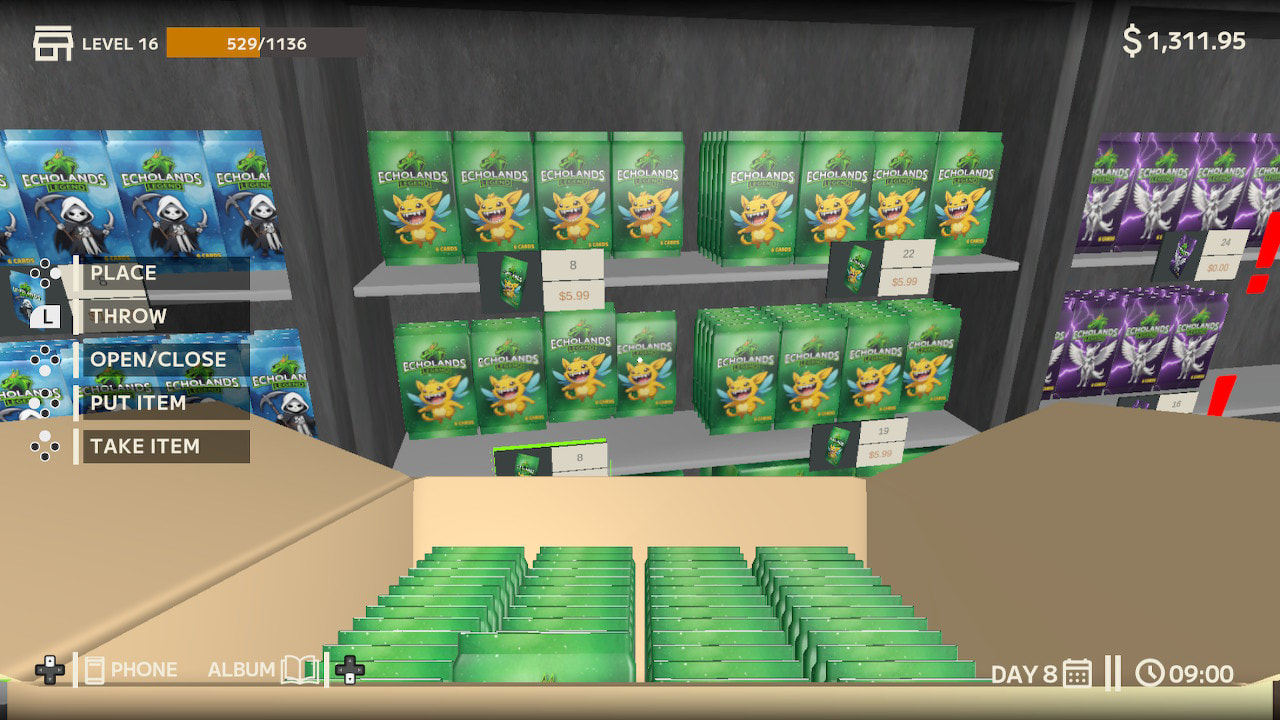
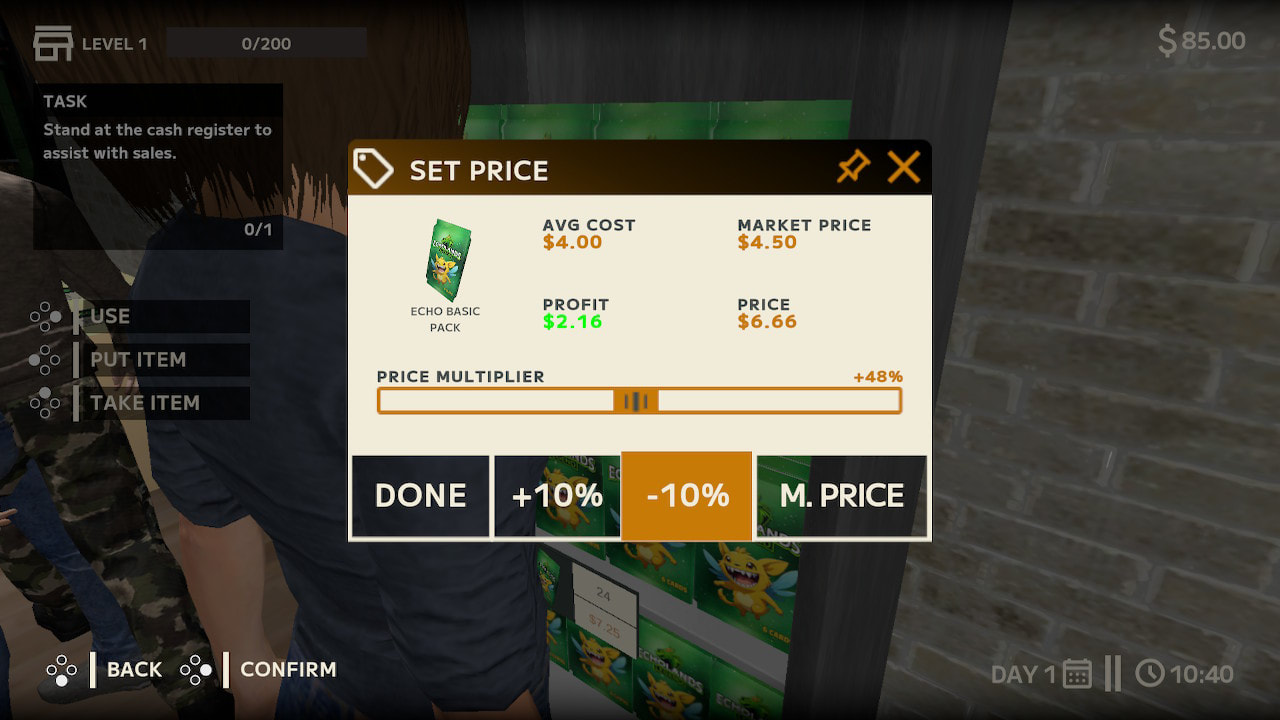
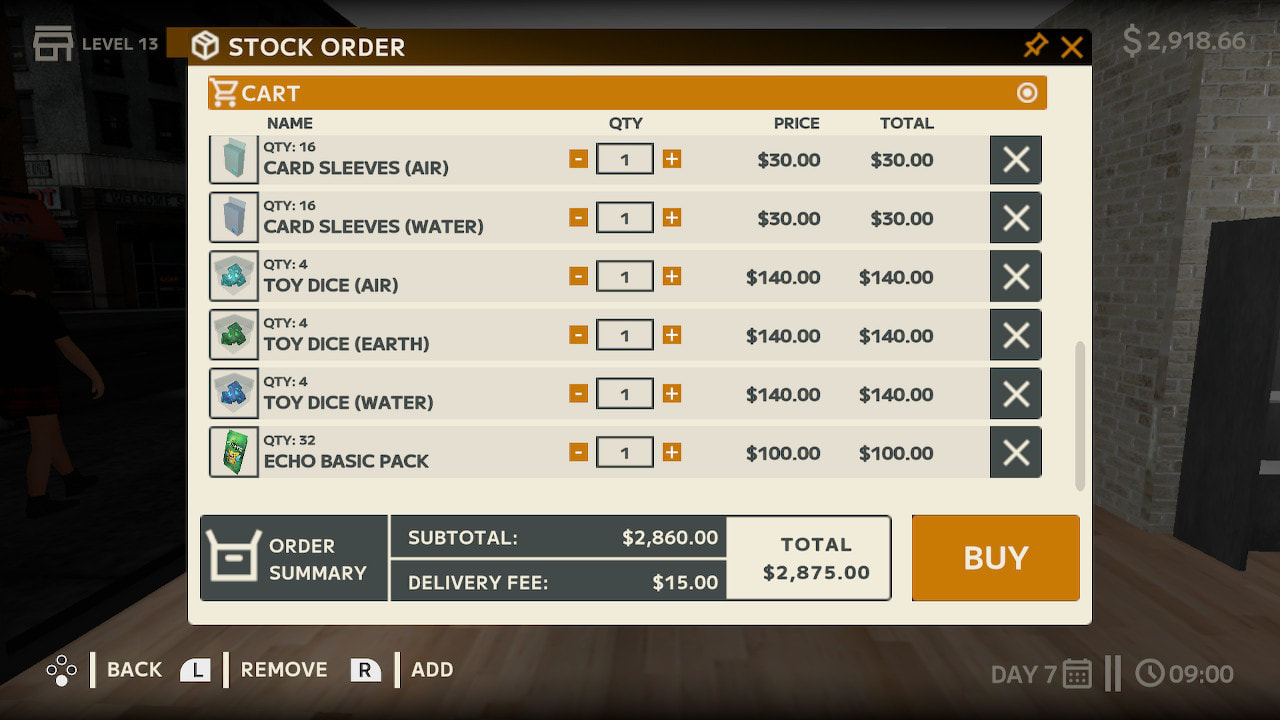
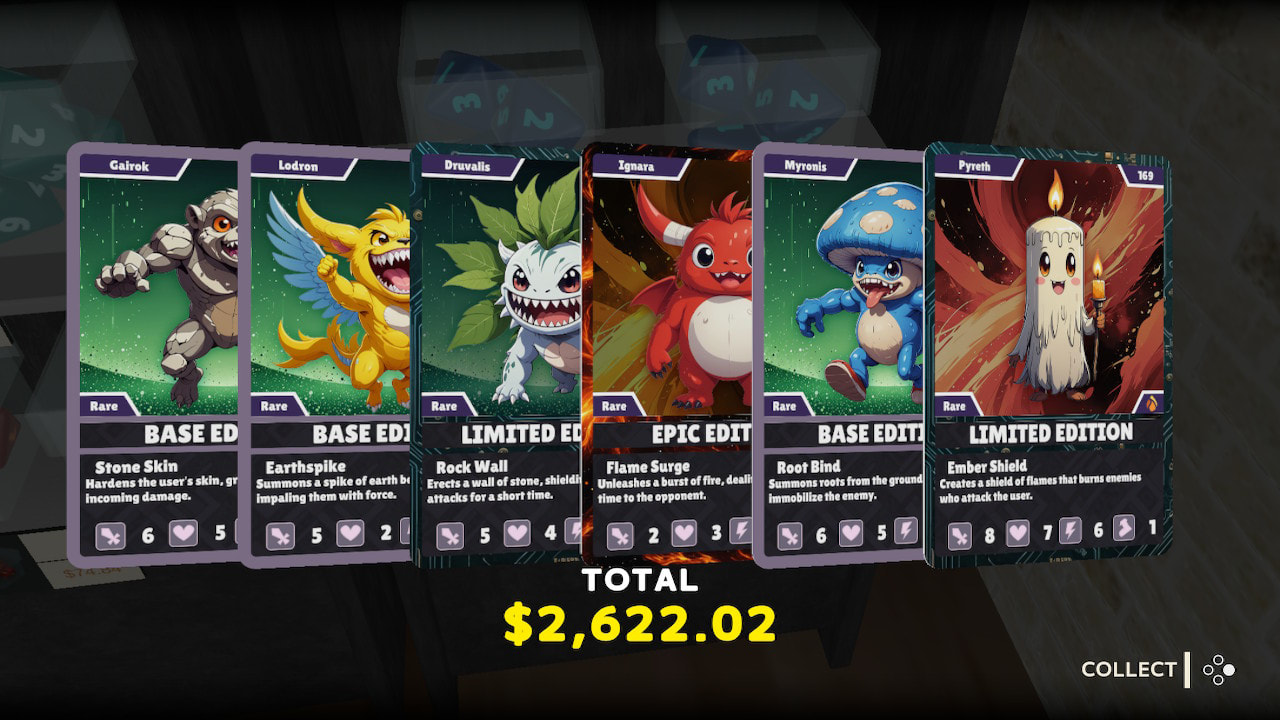
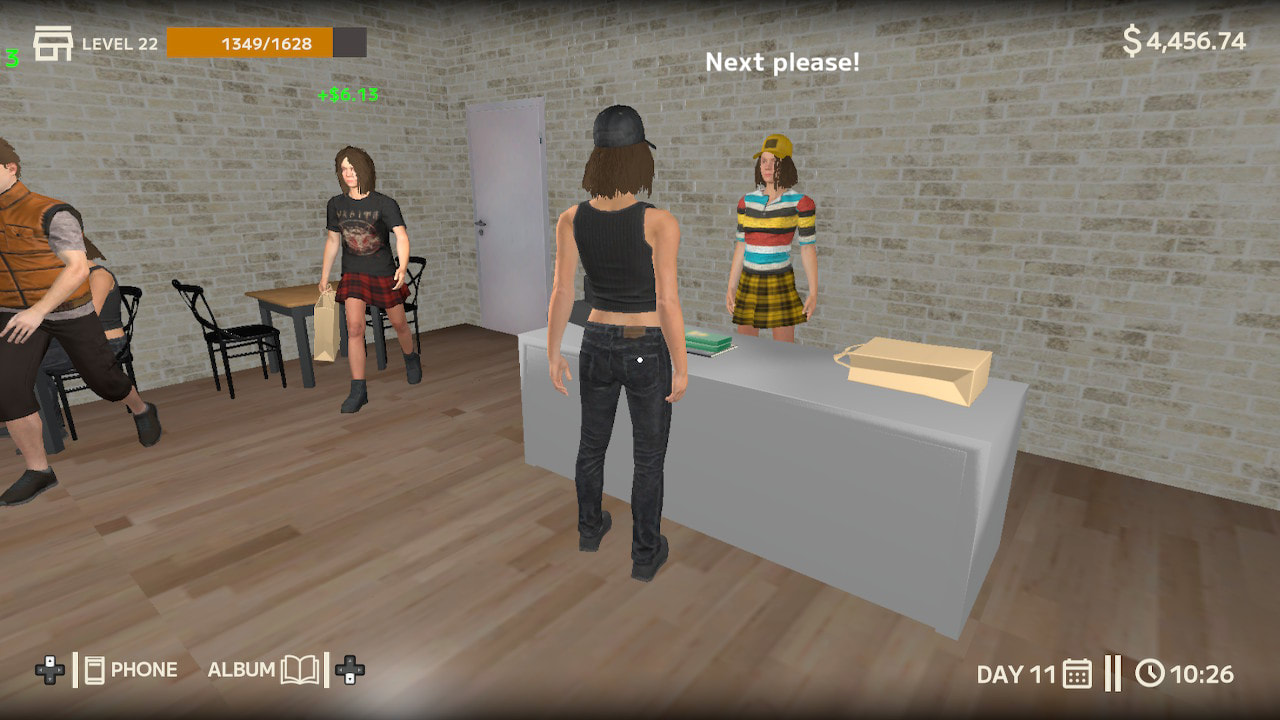
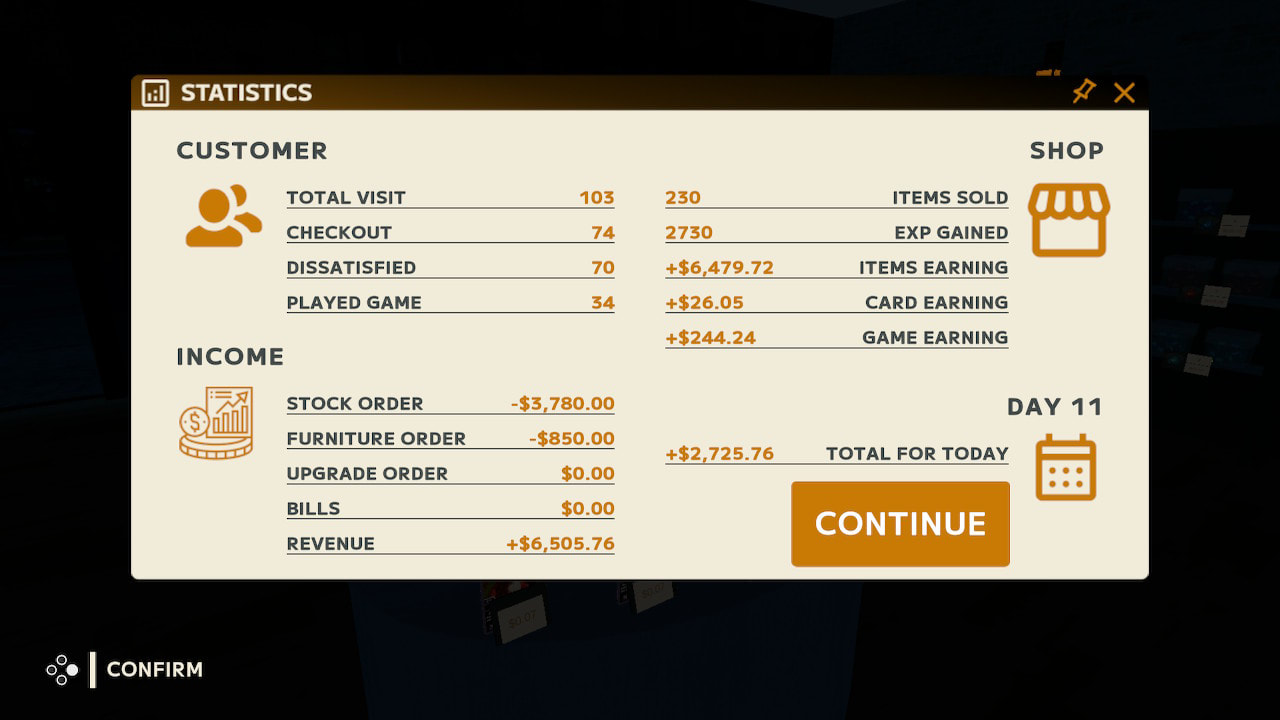
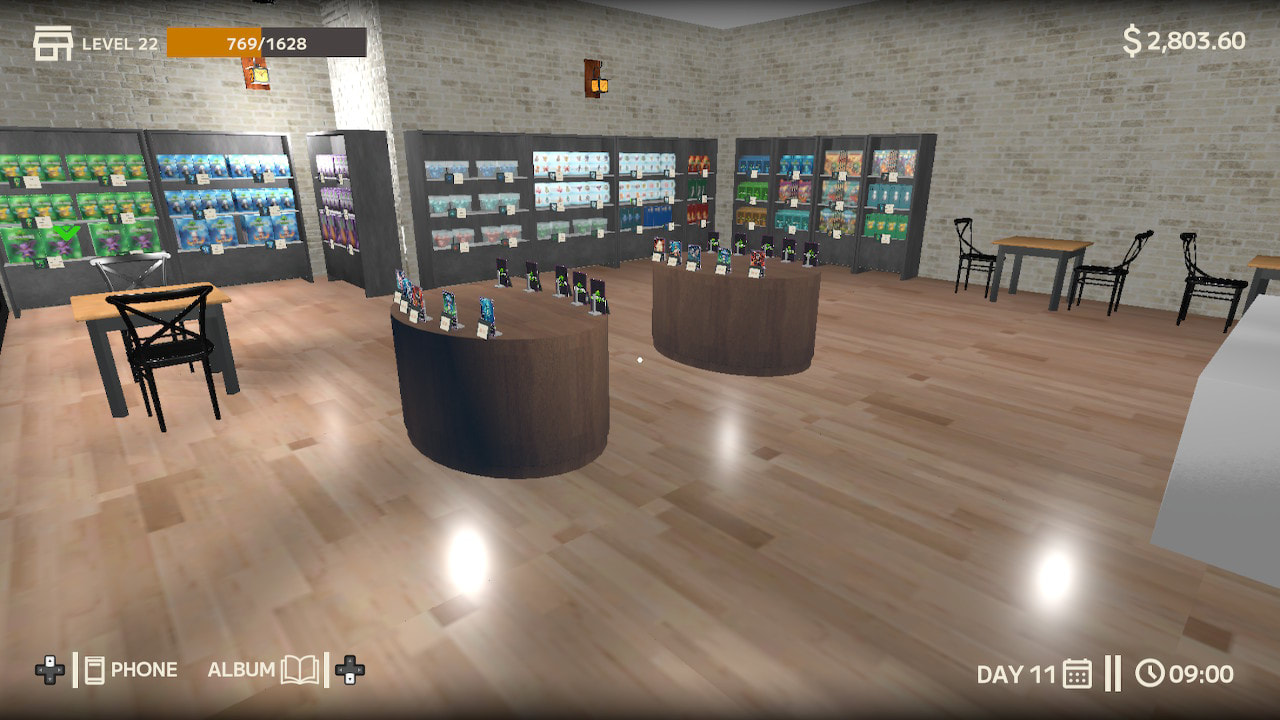
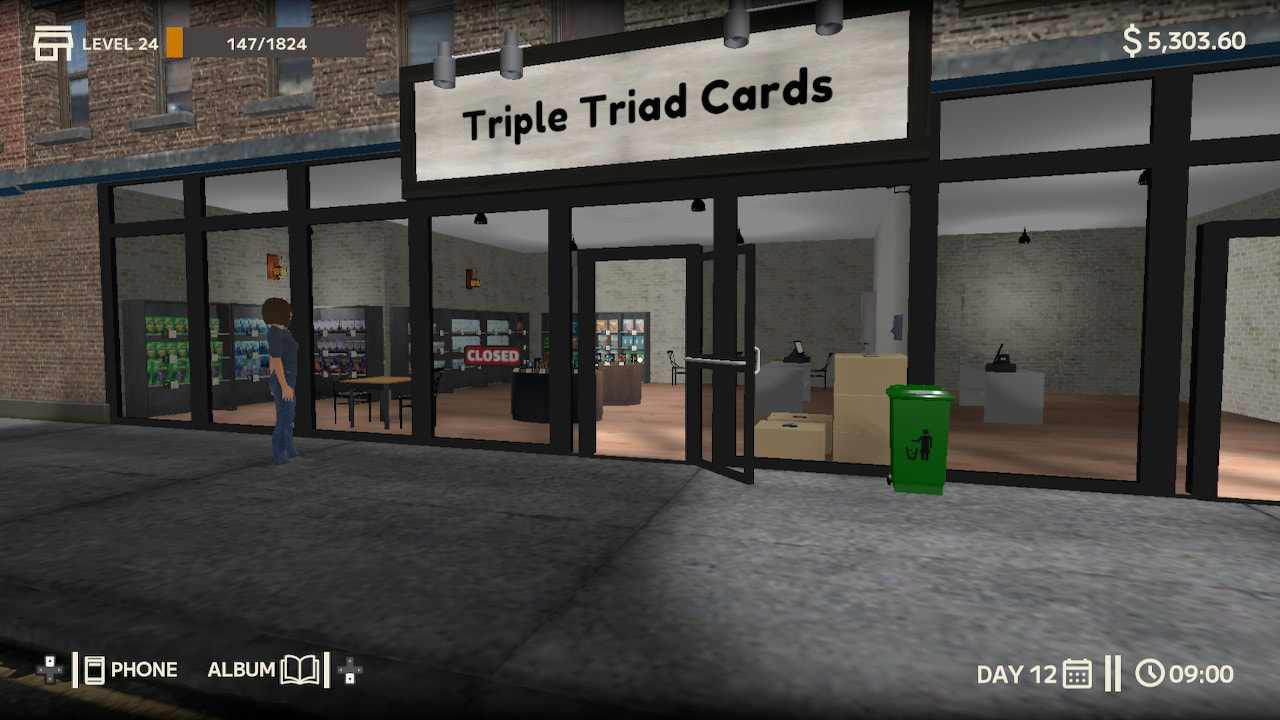

 RSS Feed
RSS Feed